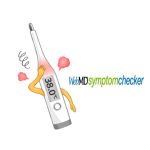Choosing the Right IV Compatibility Checker for Your Healthcare Facility

In the world of healthcare, ensuring patient safety is paramount. When it comes to administering intravenous (IV) medications, the stakes are even higher. IV compatibility checkers play a critical role in this process by helping healthcare professionals determine the compatibility of various medications, reducing the risk of adverse reactions and medication errors.
In this article, we will explore the best IV compatibility checkers available in the healthcare industry, their features, benefits, and the importance of using them in clinical practice.
What Are IV Compatibility Checkers?
IV compatibility checkers are sophisticated software tools designed to assist healthcare providers, such as nurses, pharmacists, and doctors, in making informed decisions regarding the mixing and administration of intravenous medications. They help prevent medication errors and adverse reactions by providing real-time information on the compatibility of different drugs and intravenous solutions.
The core functions of IV compatibility checkers include:
1. Compatibility Analysis: IV compatibility checkers analyze the chemical and physical properties of medications, including pH, concentration, and temperature, to determine whether they can be mixed together without adverse effects.
2. Drug Information: These tools provide detailed information about each medication, such as dosing guidelines, side effects, and administration instructions.
3. Alerts and Warnings: IV compatibility checkers generate alerts and warnings when they detect potential incompatibilities or unsafe drug combinations, helping healthcare providers make safer decisions.
4. Documentation: They often offer documentation features to keep a record of the compatibility checks performed, aiding in accountability and compliance.
The Importance of IV Compatibility Checkers
The use of IV compatibility checkers is indispensable in healthcare settings for several reasons:
1. Patient Safety: Preventing medication errors and adverse reactions is a top priority in healthcare. IV compatibility checkers help safeguard patient safety by reducing the risk of administering incompatible medications.
2. Reduced Medication Errors: Medication errors are a significant concern in healthcare, with potentially severe consequences. IV compatibility checkers play a crucial role in mitigating these errors.
3. Improved Workflow: These tools streamline the process of checking medication compatibility, making it more efficient and less time-consuming for healthcare providers.
4. Enhanced Accuracy: IV compatibility checkers provide evidence-based information that improves the accuracy of medication administration.
5. Cost Savings: By preventing the waste of medications due to incompatibilities, healthcare facilities can save money.
6. Legal and Regulatory Compliance: Using IV compatibility checkers helps healthcare institutions meet legal and regulatory requirements for patient safety and medication management.
Features to Look for in the Best IV Compatibility Checkers
When selecting the best IV compatibility checker for a healthcare facility, there are several essential features to consider:
1. Comprehensive Medication Database: A vast and up-to-date database of medications, including both brand and generic names, is crucial for accurate compatibility checks.
2. Real-Time Alerts: The software should provide real-time alerts and warnings when potential incompatibilities are detected.
3. User-Friendly Interface: An intuitive and user-friendly interface makes the software accessible to healthcare professionals of all experience levels.
4. Integration Capabilities: The ability to integrate the IV compatibility checker with existing healthcare systems, such as electronic health records (EHR), pharmacy management systems, and computerized physician order entry (CPOE) systems, is essential for seamless workflow.
5. Documentation and Reporting: The software should offer features for documenting compatibility checks and generating reports for auditing and compliance purposes.
6. Mobile Access: Compatibility checkers with mobile apps or cloud-based solutions enable healthcare providers to perform checks at the patient’s bedside, improving convenience and efficiency.
7. Drug Information: Detailed drug information, including dosing, administration guidelines, and potential side effects, should be readily available within the software.
8. Up-To-Date Information: Medication databases should be regularly updated to ensure accuracy and compliance with the latest drug information.
9. Customization: The ability to customize the software to align with specific hospital protocols and guidelines is crucial.
10. Technical Support and Training: Reliable technical support and comprehensive training options are important to ensure that healthcare professionals can use the software effectively.
Best IV Compatibility Checkers In The Health Care Industry
Let’s explore some of the best IV compatibility checkers available, each with its unique features and advantages.
1. FDB Multilex
FDB Multilex is a comprehensive medication decision support solution that includes an IV compatibility checker. It offers a vast database of medications and intravenous solutions, providing real-time compatibility checks and drug information. The software is known for its accuracy and is widely used in healthcare institutions to enhance patient safety.
Key Features:
• Extensive medication database.
• Real-time alerts for incompatibilities.
• Integration with various healthcare systems.
• User-friendly interface.
• Customization options.
• Mobile access through a cloud-based platform.
• Robust documentation and reporting features.
• Regular updates to the medication database.
Trissel’s IV-Chek is a trusted IV compatibility checker that healthcare professionals rely on for safe and accurate medication administration. Developed by ASHP (American Society of Health-System Pharmacists), it offers a wealth of information on intravenous medications and compatibility checks.
Key Features:
• Up-to-date medication database.
• Real-time alerts for potential incompatibilities.
• Integration with hospital systems.
• Detailed drug information.
• Compliance with industry standards.
• Mobile access for bedside checks.
• Robust documentation and reporting capabilities.
• Reliable customer support.
3. Lexicomp
Lexicomp, a Wolters Kluwer product, is a widely used drug information database that includes an IV compatibility checker. It is known for its extensive and continually updated medication database, making it a valuable resource for healthcare providers.
Key Features:
• Comprehensive medication database.
• Real-time compatibility checks.
• Integration with EHR and CPOE systems.
• Mobile access via the Lexicomp mobile app.
• Extensive drug information.
• Customization options.
• Documentation and reporting features.
• Regular database updates.
4. MedISIS iFlow
- MedISIS iFlow is a versatile IV compatibility checker that offers a user-friendly interface and extensive drug information. It is designed to streamline medication management and enhance patient safety.
Key Features:
• Medication database with real-time compatibility checks.
• User-friendly interface.
• Integration with healthcare systems.
• Customization to fit hospital protocols.
• Mobile access for bedside checks.
• Extensive drug information.
• Documentation and reporting features.
• Regular software updates.
5. Medi-Span IV Compatibility Checker
Medi-Span, a part of the industry-leading Wolters Kluwer group, offers an IV compatibility checker as part of its suite of medication management solutions. It is known for its robust database and accuracy.
Key Features:
• Comprehensive medication database.
• Real-time compatibility checks.
• Integration with various healthcare systems.
• User-friendly interface.
• Extensive drug information.
• Customization options.
• Documentation and reporting capabilities.
• Regular database updates.
Choosing the Right IV Compatibility Checker for Your Healthcare Facility
Selecting the best IV compatibility checker for your healthcare facility is a crucial decision. To make an informed choice, consider the following factors:
1. Hospital Needs: Evaluate your hospital’s specific needs, including the size of the facility, patient population, and existing healthcare systems. Choose a compatibility checker that aligns with these requirements.
2. Compatibility with Existing Systems: Ensure that the IV compatibility checker can seamlessly integrate with your hospital’s electronic health record (EHR), pharmacy management, and other essential systems.
3. Medication Database: Assess the size and accuracy of the medication database. The more extensive and up-to-date the database, the better the software can serve your facility’s needs.
4. User-Friendly Interface: A user-friendly interface is vital for quick adoption and efficient use by healthcare professionals. Look for software with an intuitive design.
5. Mobile Access: Consider the importance of mobile access for conducting bedside compatibility checks. Mobile capabilities can greatly improve workflow and patient safety.
6. Customization: Check if the software allows for customization to align with your hospital’s protocols and guidelines.
7. Technical Support and Training: Reliable technical support and training options are essential to ensure that your staff can use the software effectively.
8. Cost: Evaluate the cost of the IV compatibility checker, taking into account your facility’s budget constraints. Remember that the cost of implementing such a tool should be balanced with the potential savings from preventing medication errors and incompatibilities.
Conclusion
IV compatibility checkers are indispensable tools in the healthcare industry, ensuring patient safety and reducing the risk of medication errors and adverse reactions. By providing real-time compatibility checks, drug information, and alerts for potential incompatibilities, these software solutions play a critical role in improving healthcare outcomes.
When selecting the best IV compatibility checker for your healthcare facility, carefully consider factors such as the medication database, integration capabilities, user-friendliness, mobile access, customization options, technical support, and cost. By choosing the right IV compatibility checker, you can enhance patient safety and streamline the medication management process in your institution, ultimately leading to better healthcare outcomes for your patients.





